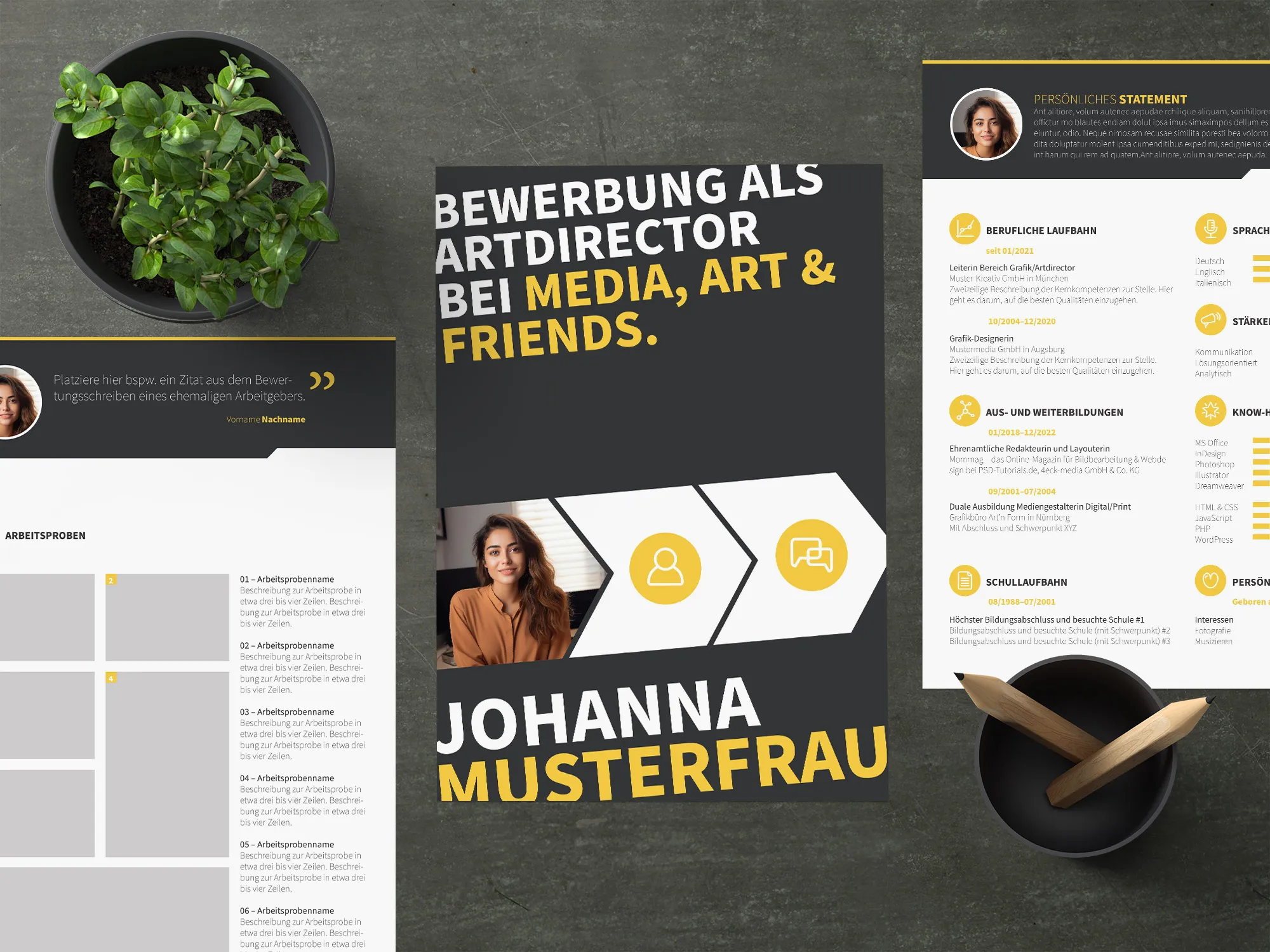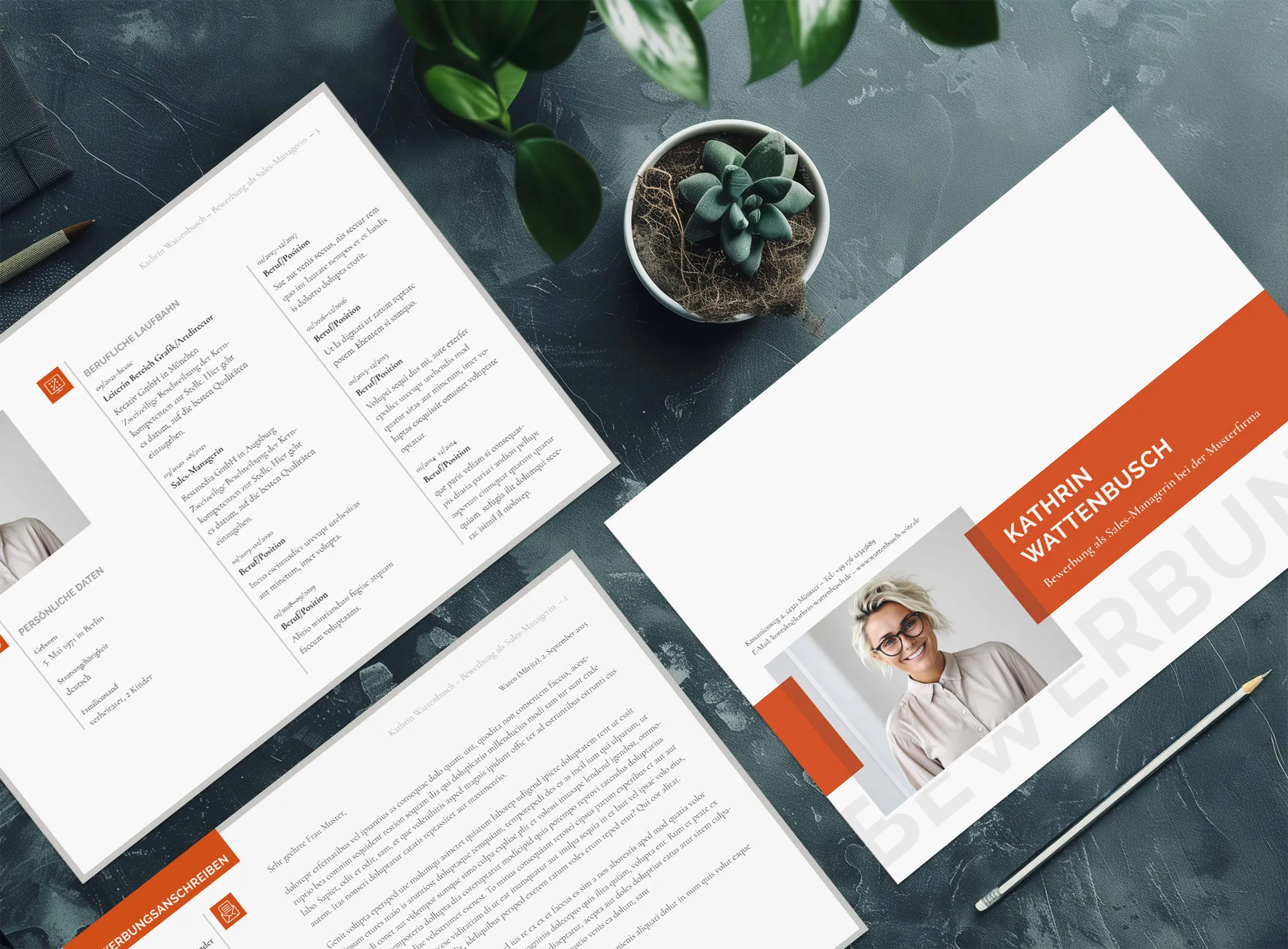The interview is an important stage in the recruitment process that has a direct impact on the success and performance of your company in the future. Not only the quality of the new employees, but also the reputation of your company on the job market depends on how you prepare and conduct the interview. On the employer rating platform Kununu, even applicants can rate a company publicly. As a company, it is therefore advisable to be fair and respectful to potential employees during the application process.
In this article, you will find practical tips to help you organize interviews effectively, assess applicants objectively and find the best employees for your team. Learn how to create a pleasant atmosphere, prepare questions, assess skills and make an informed hiring decision.

Table of contents
Preparing for the interview
Preparing an employer for an interview is an important step in the hiring process that ensures an effective personal assessment of applicants. Success in finding a suitable employee and their skill level also depends on how thoroughly you prepare for the interview. There are three main aspects to consider: defining the selection criteria, preparing the questions and organizing the interview itself. These steps will help you to create an interview structure that allows you to assess the skills and potential of each applicant as accurately as possible.
Every employer wants applicants who stand out professionally from the crowd of random applications. One way to do this as an applicant is to use high-quality application designs like these:
Definition of selection criteria
A clear definition of the requirements for an applicant is really important for a successful interview and for applicants to be assessed objectively. Here you will learn how an employer can correctly determine the necessary skills, experience, education and personal qualities of a potential applicant:
Determine the required skills
Analyze the job duties: Start by analyzing the job duties in detail. Find out what specific skills are required to perform these tasks. For example, if the job involves working with software, knowledge of specific software or programming languages may be required.
Talk to department heads: Talk to the department heads who will be working with the new employee. They can provide valuable input on what skills are most important to work effectively in their department.
Prioritize skills: Make a list of the skills needed for the job and prioritize them. Recognize the core skills that are critical to the job and the additional skills that are desirable but not required.
Increase the effectiveness of your CV with our application templates. Create a unique resume that will make you stand out from the crowd and get you the job you want. Why wait? Buy the template now! Download the template 📄.
Determine the required experience
Experience level: Determine how many years of experience are required to fulfill the duties of the position. For example, do you need an applicant with minimal experience or do you need someone with a lot of industry experience and an existing network?
Evaluate previous positions: Consider what specific positions or tasks in the past might be relevant to the job. This will give you an idea of which tasks the applicant has already performed and which they can perform in the new position.
Relevant projects: Pay attention to the projects the applicant has been involved in. It is important that the applicant's experience includes tasks that are similar to those they will perform in your company.
Determine the required education
Education level: Indicate what level of education is required for the position. This can be a bachelor's degree, a master's degree or specialized professional training.
Specialization: Consider whether specialization in a particular field is required. For example, for technical positions, a degree in engineering, information technology or other relevant disciplines may be important.
Certifications and courses: Consider whether additional certifications or courses are required for future roles. Some positions require specific certifications or additional training to perform certain tasks.
Determine the necessary personal qualities
Analyze the company culture: Consider which personal qualities are important for successful work in your company. These may include qualities such as communication skills, stress tolerance, teamwork, leadership skills, etc.
Working with the team: Talk to the team that the new employee will be working with. Ask them what personal qualities they find most important for a pleasant and productive working relationship.
Prioritize: Make a list of personal qualities and prioritize them. Identify the most important ones that are critical to the job and the additional ones that are optional.
Don't miss the chance to get your dream job. Our application templates will help you make a lasting impression on your future employer. Get the perfect template today! To the templates 📄
How to objectify the assessment
Use standardized criteria to evaluate all applicants. This avoids subjectivity and creates a level playing field for all applicants. Create an evaluation matrix that lists all the required skills, experience, education and personal characteristics. Assess each applicant against this matrix and award points for each criterion.
If necessary, involve several people from the team in the assessment. A joint discussion leads to a more objective assessment and reduces the influence of subjective factors. Compare the candidates with the reference profiles of the ideal employee for the position. This will help you to understand how well the individual applicants fulfill the requirements.
If you formulate the requirements for applicants correctly and use objective assessment methods, you can find the best specialist for your company.
Preparing the questions you should ask in the interview
Preparing questions for a job interview is crucial for assessing an applicant's skills. You need to do this as accurately as possible to get a complete picture of the candidate's professional skills, experience, motivation and personal qualities. Here is a list that can help you get all the information you need from applicants.
Questions you should ask in the interview about your professional skills
- What technical skills do you use in your work? This will help you understand the applicant's level of technical competence and the relevance of their skills to the requirements of the job.
- Can you give an example of a project where you have used your skills? This will help you assess the applicant's practical experience and their ability to apply their skills in real-life situations.
Questions you should ask about experience in the interview
- Tell us about your previous position and your main responsibilities. This question will give you an overview of the applicant's career history and experience in previous positions.
- What were your greatest achievements in your previous position? This will give you an idea of what specific results the applicant has achieved in his or her career and how he or she can be useful to the company.
Questions you should ask about motivation in the interview
- Why do you want to work in our company? This allows us to assess the applicant's interest in working for our company and their motivation.
- What are your long-term career goals? This question helps us to understand to what extent the applicant's goals match the opportunities offered by our company and whether he or she plans to work for us in the long term.
Questions you should ask in the interview about personal qualities
- How do you deal with working under pressure? This will help demonstrate the applicant's stress tolerance and ability to work effectively in difficult situations.
- How do you usually resolve conflicts in a team? It helps to understand how the candidate interacts with their colleagues and how they can resolve conflicts.
General questions you should ask during an interview
- What motivates you to achieve high results? This question is worth asking if you are interested in the candidate's internal motivators and their desire to succeed.
- How do you see your contribution to our company? The answer to this question will help you understand the extent to which the applicant understands how their skills and experience can be useful to the company.
An algorithm for preparing questions for a job interview
- Analyze the job description: Analyze the main responsibilities of the job to understand what specific skills and experience are required. The questions should be based on these requirements and help you to assess whether the applicant is suitable for the job.
- Consult with the team: Discuss with the department heads who will be working with the new employee what skills and attributes are important. They can suggest specific questions to help you assess the skills required.
- Structuring the questions: Divide the questions into categories: professional skills, experience, motivation and personal qualities. This will allow you to create a balanced set of questions that will enable you to assess all important aspects of the applicant.
- Clarification: Prepare clarifying questions for each main topic. This will give you more in-depth answers and help you get to know the applicant better.
- Test work: Practice the interview with colleagues or interviewees to ensure that the questions are clear and provide the desired information. This will allow you to identify potential weaknesses and adapt the list of questions.
Preparing a clear set of interview questions is a good foundation for objectively assessing candidates. If you choose them correctly, they will help you to assess the professional skills, experience, motivation and personal qualities of applicants so that you can find the best candidate for your company. You can find out more about the questions in our materials.

Organizing the job interview
Organizing the job interview correctly will help you to reliably assess applicants and convey a positive impression of the company. Carefully consider the following two factors in this process.
Time
Choose a time for the interview that is convenient for both you and the applicant. Try not to schedule interviews in the early morning or late evening when people are less productive. Plan your time so that you are not rushed. Allow enough time to discuss any important issues and allow for possible delays. An interview usually lasts between 30 minutes and an hour. If you schedule several interviews in a row, you should plan a break in between to rest and prepare for the next interview.
Location
It is best to conduct the interview in a quiet place where there are no background noises or distractions. Seclusion will make the applicant feel more comfortable and confident, which will encourage them to open up. Choose a location that is easy to find and convenient to get to. Give the applicant clear directions, including information about parking or public transportation. Make sure the interview room is well lit and has a pleasant appearance. Comfortable chairs and cleanliness will help to make a positive impression.
Conducting a job interview
A successful interview not only helps you as an employer to evaluate the applicants, but also to give a positive impression of the company. To do this effectively, you should divide the interview into certain phases. These can be structured as follows.
Create a pleasant atmosphere
Greet the applicant with a smile and offer them a drink (water, tea, coffee). This will help to ease the initial tension. Explain where the toilet is and how to use the technical equipment if necessary (for example, if the applicant has brought a presentation). Start the interview with a casual conversation and ask a few neutral questions. This will help you build rapport and put the applicant at ease.
Here's a quick tip:
- Did you have a good time finding your way to our office? Was everything clear with the instructions? This question helps to reduce tension and shows that you are interested in how the applicant came to us.
- Would you like something to drink - water, tea or coffee? If you offer a drink, it gives the applicant time to relax a little in your presence.
- Have you been to our place before? How do you like it here? This question provides an opportunity to discuss something informal and familiar.
- How is your day going so far? This question can help to reduce stress levels.
- Do you already have plans for the weekend or your next vacation? This question helps to change the subject to something unrelated to work and creates a relaxed atmosphere.
Introduce the company
Start with a short story about the company's history, mission and tasks. This will help applicants understand what kind of company they might be dealing with. Tell them about the company culture: how the team works, what traditions exist and how the working day is organized. This will help them imagine being part of your company. Describe the most important projects the company is working on and its biggest successes. This can increase the applicant's motivation to join your team.

Job description
Describe the job duties in detail. Explain what the applicant will do on a daily basis. Set out clear performance expectations. Explain what goals must be achieved and what performance standards will be applied. Describe the team the applicant will be working with and the manager who will be their direct supervisor. This will give applicants a complete picture of the working environment.
Questions to ask the applicant
Ask about the technical skills required for the job. For example: What software did you use in your previous job? What projects have you completed using these skills? Inquire about the applicant's previous work experience. Ask them to tell you about their last job and their main responsibilities or what their biggest achievements were in their previous job.
Ask about the applicant's motivation. Why does he want to work in your company and what are his long-term career goals? Be sure to assess their personal qualities. Ask them how they deal with stress at work and how they resolve conflicts within the team.
Conclude the interview
Summarize the interview and ask the applicant if they have any questions. This shows that you are interested in an open dialog. Inform the applicant about the next steps in the recruitment process and the timetable for a decision. This way, the applicant knows what to expect after the interview.
Thank the applicant for their time and interest in the position. This way you present yourself as a professional and definitely leave a positive impression of you and your company.
Evaluation of the applicant
I recommend that you take notes of the applicant's answers during the interview. This will help you retain important information and evaluate all applicants objectively after the interview. Take some time to compare the answers with the selection criteria you have set. Assess the extent to which their experience and skills match the requirements you have set for the position.
Look for qualities such as communication skills, teamwork, stress tolerance and motivation. This will help you determine how well the applicant will fit into your team.
Always remember that the right interview is an important step in the recruitment process that will help you find and select the best candidates for your company. It is also the case today that companies are suffering from a shortage of skilled workers. It is therefore all the more important that you and your company position yourself as a professional team for the applicant. Follow the tips above to conduct effective interviews that lead to a high-quality assessment of applicants and informed decisions that will bring your company the greatest possible benefit in the form of employees.
Conducting a job interview: Tips for employers and HR managers
From Vitalii Shynakov
